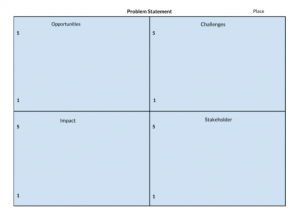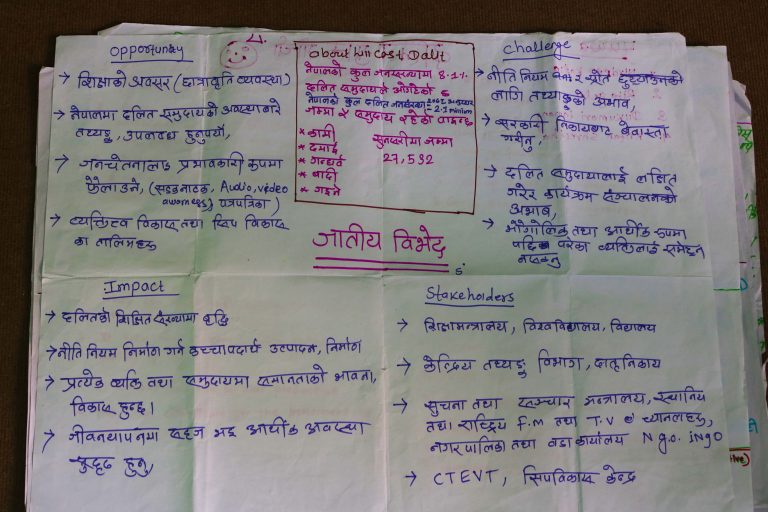This post was jointly written by Shubham Ghimire, Chief Operating Officer and Nikesh Balami, Chief Executive Officer of Open Knowledge Nepal as a part of the Youth Empowerment, Youth Leadership and Data Workshop. It has been reposted from the Open Knowledge Nepal blog.
This summer, the PAHICHAN – Youth Empowerment, Youth Leadership and Data workshop was conducted in 6 districts of 3 different provinces of Nepal, where more than 126 energetic youths were trained and sensitized on the concept of open data. The aim was to create a network of young data leaders who will lead and support the development of their communities through the use of open data as evidence for youth-led and data-driven development. The three days in-house workshop were conducted in Itahari, Bhojpur, Butwal, Nepalgunj, Dhangadhi and Dadeldhura from 12th July to 14th August 2018.
During the 3 days workshop, the participants were informed about concepts of youth rights, leadership skills, and were oriented about the use of open data, visualization and mapping as evidence to tackle issues in their community. The session about youth empowerment and leadership was facilitated by the YUWA team and the hands-on workshop on data, visualization and mapping were facilitated by Open Knowledge Nepal, Nepali in Data and NAXA. The team was accompanied by the representative of the Data for Development Program in Nepal and local partners.

The following local partners helped in coordination in organizing a residential workshop successfully:
| Districts | Local Partner |
| Itahari | Youth Development Centre Itahari |
| Bhojpur | HEEHURLDE-Nepal |
| Butwal | Rotaract Club of Butwal |
| Nepalgunj | Cheers Creative Nepal – CCN and District Youth Club Network |
| Dhangadi | Far West Multipurpose Center |
| Dadeldhura | Social Unity Club |
Open Knowledge Nepal’s Session at PAHICHAN – Youth Empowerment, Youth Leadership and Data Workshop
 On the first day of the workshop, Open Knowledge Nepal delivered a session on ‘Open Data in Nepal’, where the history, current situation, definition, importance, working methodology and different open data initiatives from government, CSOs and private sectors were included.
On the first day of the workshop, Open Knowledge Nepal delivered a session on ‘Open Data in Nepal’, where the history, current situation, definition, importance, working methodology and different open data initiatives from government, CSOs and private sectors were included.
On the second day after the orientation about data-driven brainstorming, participants were divided into groups and each group was asked to come up with a problem in their community. Then the groups started working on their identified issues where they explored existing data of the problems, hidden opportunities and probable solutions using data, the challenges, impact, and identification of stakeholders to solve the raised issue.
On the final day, the participants further worked in two groups to plan evidence-based campaigns on the issues they have worked on in the second day. Most of the groups planned to do awareness campaigns by making use of data, infographics, and maps. Each group was provided with seed money of NPR 7500 to implement their action plan within one month.

We realized the data-driven brainstorming session was very fruitful for the young participants and definitely helped them in understanding local community issues through the use of open data. Now, these participants can easily plan and conduct small impactful projects, evidence-based action plans, and campaigns with limited resources.
A list of issues which were selected for the brainstorming session:
| Districts | Community Issues |
| Itahari | Illiteracy, Unemployment, Substance Abuse, Caste Discrimination, Pollution |
| Bhojpur | Quality Education, Migration, Physical Infrastructure, Gender Discrimination, Unemployment |
| Butwal | Substance Abuse, Quality Education |
| Nepalgunj | Substance Abuse, Cleanness |
| Dhangadi | Youth Unemployment, Substance Abuse |
| Dadeldhura | Good Governance, Substance Abuse (Alcohol Consumption) |

Project Impact
- Human Resources: The increase in the data demanding human resources, who can now understand and use the available data to tackle the local issues of their community.
- Data Champions: All the 126 youth data champions are now capable of effectively planning and running evidence-based action plans and campaigns in their community.
- Community Projects: The campaigns/projects led by each team on the community issues are making a difference in the community by awareness and advocacy through the use of infographics, mapping, and open data.
- Future: We can mobilize these youth data champions for awareness and advocacy campaigns at the local level.
Major Takeaway
- Digital Divide: In urban areas like Itahari, Butwal, and Nepalgunj most of the participants have the basic understanding of the overall topics but participants from the peri-urban region like Bhojpur, Dhangadhi, and Dadeldhura were not familiar about the topics and it was difficult for most of them to understand the subject.
- Female Participation: One of the positive factors is that the female participation rate is higher than the male. Participants were energetic, enthusiastic and curious throughout the workshop.
- Access to Internet: Due to the lack of internet facility in peri-urban areas, a lot of things were left unexplored.
- Continuity: Many participants requested to organize similar kinds of events and hands-on workshop frequently. The workshop has definitely helped in strengthening the demand side of the data.
- Practical Implementation: Participants learned the importance of evidence-based action plans and data-driven campaigns and development, but more of these kinds of the workshop are needed to teach them about the practical implementation.
Lesson Learned
- Educational diversity of participants: We realized that most of the participants were from the same background. It would be better if there were participants from different backgrounds.
- Onsite improvisation: We had to adjust and improvise our presentations and sessions according to the understanding level of the participants.
- Digital literacy: You need to have a basic knowledge of technology to understand the use and value of data, visualizations, and mapping. But we felt that most of the participants in peri-urban areas lack the basic understanding. So we think it may not have been that much fruitful for them.
The workshop was organized by YUWA and Data for Development in Nepal in coordination with Nepal in Data, Open Knowledge Nepal and NAXA, funded by UK Department for International Development implemented by The Asia Foundation and Development Initiatives.
Nikesh is an open data advocate and tech researcher based in Nepal. He is a strong supporter of open source software and believes in the vision of Open Knowledge to empower citizens regarding technology usage and open data. He loves coffee chat, tweeting, hackathons, blogging, traveling, and open data. As an International Open Data Lead, Nikesh works closely with Open Data communities from all over the world. He also leads Open Knowledge Nepal, one of the active members of the Open Knowledge Network since 2013.









